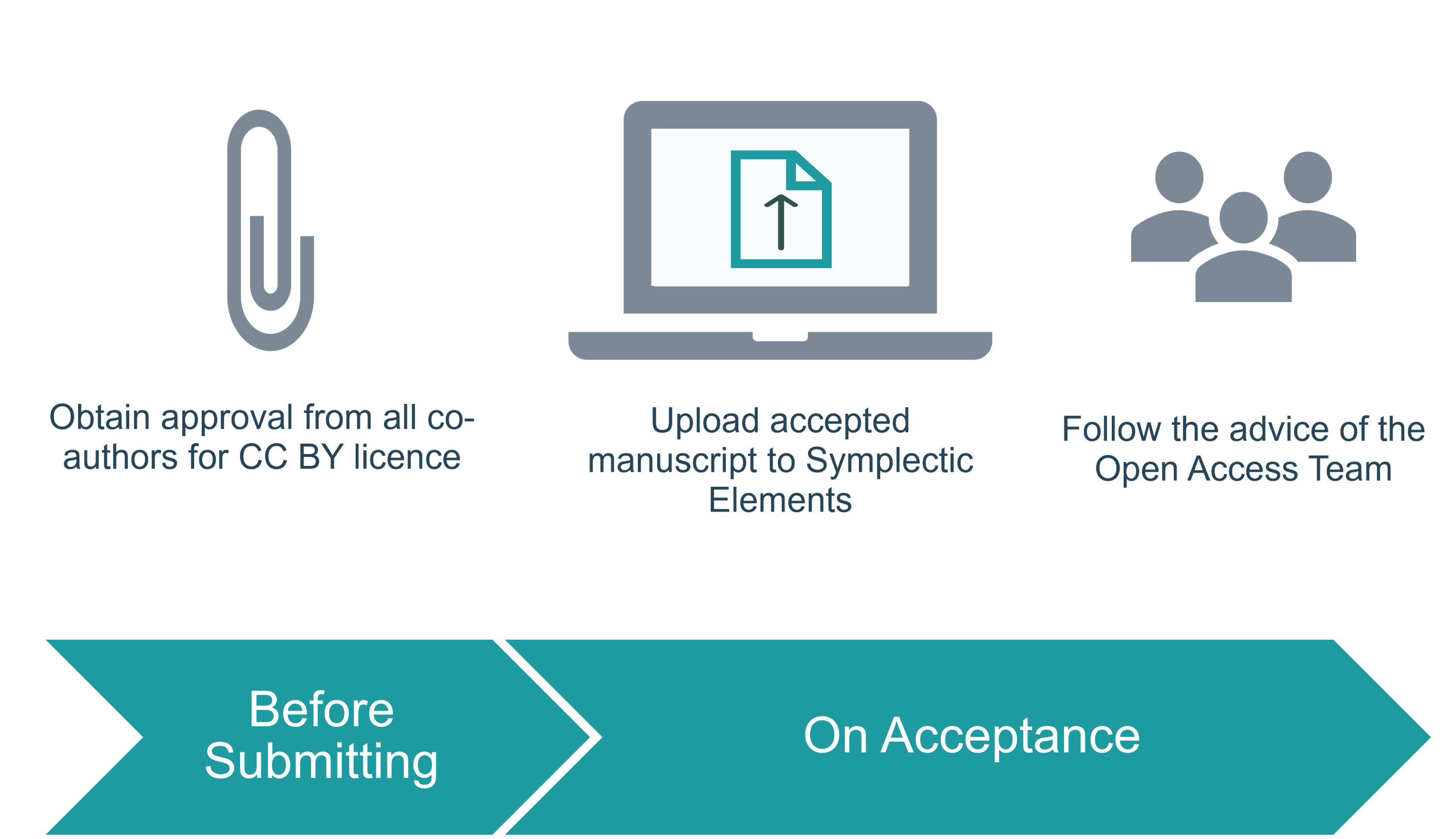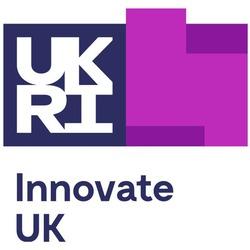The Office of Scholarly Communication based in Cambridge University Library can help you make your research open.
What do researchers need to do
The Self-Archiving Policy enables researchers to meet various funder and research assessment requirements for journal articles and conferences proceedings. By following the steps outlined below you should meet funder requirements for your published outputs.
If you are publishing a monograph and are funded by either UKRI or Wellcome Trust, please contact the Open Access Team.
Support for departments
Briefings and training sessions are available on open access, research data management and open research. To request a session for your department, please email Lynne Meehan at info@osc.cam.ac.uk or discuss with your local librarian.
Self-Archiving Policy
The University's Self-Archiving Policy cam into effect on 01 April 2023. The policy applies to all peer-reviewed research articles submitted after 01 April 2023, including reviews and conference papers, that are accepted for final publication in either a journal, conference proceeding or published platform. The policy allows authors to make their accepted research articles available in Apollo immediately upon publication. It is based on the researcher retaining their rights to apply a Creative Commons license to the accepted version of the manuscript ('rights retention').
REF, Open Research and Research Assessment
The final open access policy for REF 2029 was announced on 11 December 2024.
Outputs in scope of the REF 2029 OA policy are journal articles and conference contributions that have an International Standard Serial Number (ISSN) and are published between 1 January 2021 and 31 December 2028.
*The REF 2021 open access policy will continue to apply to journal articles and conference proceedings published before 1 January 2026.
An open access requirement for long-form outputs (monographs, book chapters and scholarly editions) will be in place for the REF-after-REF 2029, with implementation from 1 January 2029.
REF 2029 Open Access Policy for publications after 1 January 2026
REF 2021 Open Access Policy for publications before 1 January 2026
UKRI Open Access Policy
This policy comes into effect from 1 April 2022 and impacts anyone with funding from UKRI (including for example AHRC and ESRC) and we expect that similar requirements will be in place for any outputs we submit to the next REF.
The key points are:
- All research articles must be immediately open access by the publication date, either through route 1 (the 'gold' route, where the final published article is open on the journal website) or route 2 (the 'green' route, where the accepted version of the paper is put on the institutional repository - in our case this means uploading through Symplectic Elements to Apollo)
- All articles must include a statement about where other researchers can find the data underlying the research - or a statement saying that there is no such data, or a statement explaining why underlying data cannot be shared
- From 2024 there a requirement for open access to monographs and book chapters, but we don't have the detail on how this will work yet. Any monograph, book chapter or edited collection under contract from 01 January 2024 will need to be made available with creative commons license within one year of publication via self-archiving the accepted manuscript, or by publishing open access. UKRI supports open access publishing through the traditional Book Processing Charge (BPC) model, as well as other approaches, such as Diamond Open Access initiatives.









